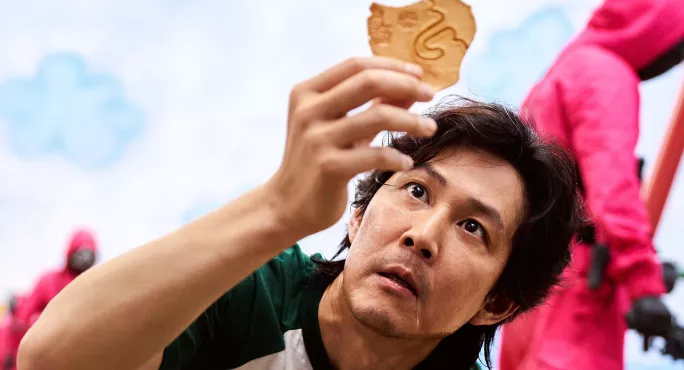My primary pupils have seen Squid Game - what do I do?

So many trends come and go in society, whether it’s new toys, dances on TikTok or zeitgeist TV shows.
All of these can have an impact on the environment of a school, but how much authority - or, indeed, responsibility - do schools have when it comes to policing this?
The latest trend to enter the school environment is the popularity of the new Netflix South Korean survival drama Squid Game.
The new trend, #SquidGame, totally inappropriate for primary age kids, yet they’re all watching it and talking abt it in school. ??
- Nuzhat Uthmani (@NUthmani) October 10, 2021
Schools urge parents not to let children watch Netflix’s Squid Game https://t.co/ubat4YxuXP
I first heard of Squid Game when two of my pupils - P7s, in the last year of primary school - were talking about it. When I asked what it was, they explained that it’s a show about people doing challenges to win money. That seemed pretty harmless to me.
But then I kept hearing mention of the show on social media, and now a school in England has been in the news after writing to parents to advise them to discourage their children from watching Squid Game, as it is wholly inappropriate for primary pupils.
The school was finding that pupils were mimicking games from the show in the playground, which staff deemed to be unsafe.
Squid Game has been certified in the UK as a 15, yet children as young as 6 and 7 are reportedly watching and playing games inspired by the show in the playground.
Related: Fear factor becomes an issue for film classification
Age of reason: ‘Make sure your class book is age-appropriate’
Gaming: What teachers need to know about Among Us
Books: Three ways to handle parents’ concerns about syllabus texts
Social media: A teacher’s guide to TikTok
Positive influence: How cinema can help to reach vulnerable learners
Some would argue that what a child engages with at home is the parent or carer’s responsibility, but these days schools and teachers are increasingly held responsible for a child’s wellbeing, taking into account their holistic world.
Schools warning parents about Squid Game
Experiences outside the school gates have an impact on a child’s development as much as experiences inside do - we can’t really separate them.
I agree, therefore, with schools advising parents of the harm of allowing access to such programmes or online content as, quite often, parents themselves are unaware of what their child is engaging with.
As a parent myself, this is a growing source of anxiety as our world becomes increasingly digitally connected - to what extent can we control what our children see, hear or do online?
This situation reminds me of the coverage of the apparent hacking of a Peppa Pig video in 2019 and the creation of a highly disturbing character called Momo that was supposedly encouraging children to harm themselves. Although it turned out to be a hoax, it all tapped into very real concerns about the sort of content children may be exposed to online.
At the time we had serious conversations in schools and with parents about safeguarding their children from such content; I believe we have a responsibility to make parents and carers aware of other harmful content as and when it arises.
Squid Game is violent and has scenes of a sexual nature that are not remotely appropriate for primary-age children.
The plot involves rich people taking advantage of the desperation of the poor - maybe an interesting conversation in senior modern studies classes (a subject distinct to Scotland that deals with current affairs), but not within the primary playground.
It is frustrating the number of conversations you have to have, as a primary teacher, with pupils about age-appropriate content, either on social media channels or in relation to video games and movies.
On a regular basis, children are watching and playing content that is not meant for them, and that could be linked to anxiety and mental health, as well as emotional and social difficulties.
Ultimately, it is the responsibility of parents and carers to police this - but schools should do more to make them aware and more accountable for the harm this can cause.
Nuzhat Uthmani is a primary teacher working in Glasgow and the founder of Global Citizenship Education Scotland. She tweets @NUthmani
You need a Tes subscription to read this article
Subscribe now to read this article and get other subscriber-only content:
- Unlimited access to all Tes magazine content
- Exclusive subscriber-only stories
- Award-winning email newsletters
Already a subscriber? Log in
You need a subscription to read this article
Subscribe now to read this article and get other subscriber-only content, including:
- Unlimited access to all Tes magazine content
- Exclusive subscriber-only stories
- Award-winning email newsletters
topics in this article



